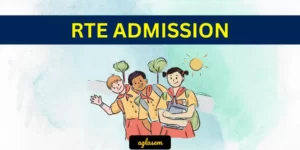RTE stands for the Right to Education Act, which is a landmark legislation enacted by the Government of India in 2009. The full name of the act is the Right of Children to Free and Compulsory Education Act, 2009. RTE aims to provide free and compulsory education to all children between the ages of 6 and 14 years in India.
Here are some key features and provisions of the RTE Act:
- Free and Compulsory Education: The RTE Act mandates that every child between the ages of 6 and 14 years has the right to free and compulsory education. It prohibits the denial of admission, discrimination, and expulsion of children from schools on various grounds.
- Infrastructure and Norms: The act specifies certain norms and standards for school infrastructure, including classrooms, playgrounds, libraries, toilets, and drinking water facilities. Schools are required to meet these standards to ensure a conducive learning environment.
- Quality Education: RTE emphasizes the importance of providing quality education to all children. It promotes child-friendly teaching-learning processes, continuous and comprehensive evaluation, and the use of innovative teaching methods.
- Prohibition of Capitation Fee: The act prohibits the collection of capitation fees or any kind of donation at the time of admission. It also prohibits screening procedures for admission, ensuring that education remains accessible to all children.
- Reservation in Private Schools: RTE mandates that a certain percentage of seats in private unaided schools be reserved for children from disadvantaged and economically weaker sections of society. These schools are reimbursed by the government for the expenses incurred in providing free education to these children.
- Teacher Eligibility: The act specifies minimum qualifications for teachers and mandates the recruitment of trained and qualified teachers in schools. It also lays down norms for teacher-student ratios and the appointment of non-teaching staff.
- Monitoring and Evaluation: RTE establishes mechanisms for monitoring and evaluating the implementation of its provisions at the national, state, and local levels. It emphasizes the role of local authorities, communities, and civil society organizations in ensuring compliance with the act.
The RTE Act represents a significant step towards universalizing elementary education and ensuring that every child in India has access to quality education without discrimination. However, challenges remain in effectively implementing the provisions of the act and addressing issues such as school infrastructure, teacher quality, and learning outcomes.

